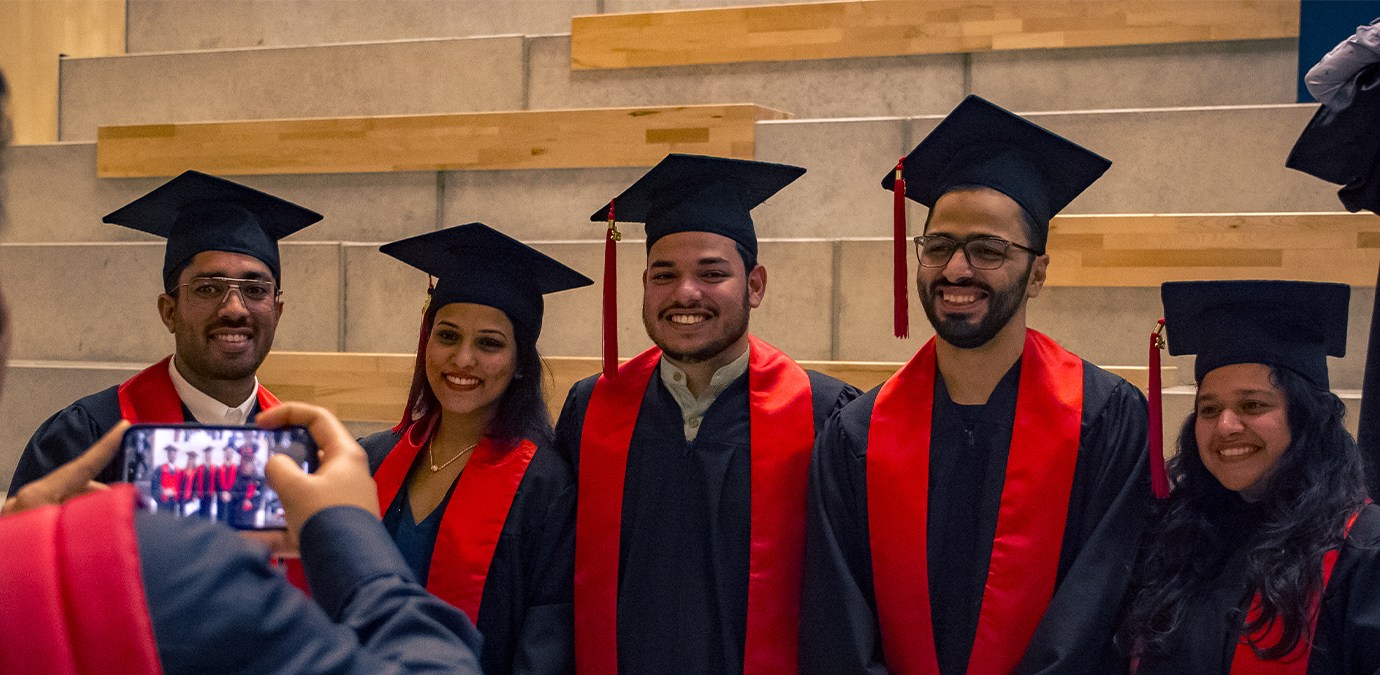
With over 450,000 international students, Germany is a leading destination for students seeking a high-quality education at an affordable cost.
Master’s degrees account for the most international students in Germany, highlighting the value of a postgraduate degree from a global powerhouse in education.
So, what’s all the hype about? Let’s explore why so many international students pursue an MS in Germany and provide tips, tricks and advice for choosing the right university for a master’s degree.

Studying a Master’s in Germany for International Students
Here are some top reasons why international students choose to study a master’s in Germany:
Reputation for academic excellence – Germany’s higher education system is recognised worldwide. International students can pursue a wide range of high-quality master’s programmes in Germany from reputable institutions.
Affordable education – A high-quality education at an affordable cost is hard to ignore!
The affordable tuition fees and low living costs compared to other popular study destinations are a huge bonus for international students.
Innovation and research – Germany has long invested in research and is a leader in innovation across various fields, including IT and engineering. With strong links between academia and industry research, international students can pursue research and internship opportunities during an MS in Germany.
Favourable employment conditions – International students can work part-time during a master’s in Germany and have up to 18 months to secure full-time employment after graduating. Oh, and don’t forget Germany has the largest economy in Europe, which helps!
Cultural diversity – With so many international students, it’s no surprise that Germany offers a diverse and multicultural environment. International students can interact with people from all over the world and build a strong global network.
Master’s Programmes in Germany: 10 Factors to Consider
It should be clear now why a master’s in Germany for international students is an excellent option. That’s why we want to help you in choosing the right university for a master’s in Germany by considering the following factors:
- English vs German-taught programmes
Germany is popular among international students due to the wide range of English-taught master’s programmes available at German universities. Most international students seek programmes delivered in English. However, they can also pursue German-taught programmes if they are proficient in German.
- University reputation vs specialisation
The university’s reputation is important. International students can refer to global, national and programme-specific rankings and recent awards to work out a university’s reputation. Specialist universities and universities of applied sciences may be better suited to the needs of international students seeking a specialised education.
- Location and cost of living
One factor to consider when selecting a master’s in Germany is the location. Popular German cities for international students include Berlin, Hamburg and Munich. Different locations offer different experiences, with Berlin known for its cultural diversity, historical sights and career opportunities.
Now to the money. International students can benefit from low living costs in Germany, with the average cost of living in German cities lower than in many other popular student destinations in Europe.
- Internship and research opportunities
When searching for a master’s degree in Germany for international students, it’s important to consider opportunities to pursue internships and research placements during your degree. Many German universities have connections with various industries, providing practical experience for students who can engage in innovative projects to enhance their learning and employability.
- Admission requirements
While each master’s degree in Germany has specific requirements regarding academic grades and experience, a few general admission requirements are standard across Germany.
To pursue a master’s degree in Germany for international students, requirements like an undergraduate degree, proof of language proficiency and a visa or residence permit must be met. Don’t forget to review the admission requirements for every programme!
- Student support services
German universities provide a wide range of student support services to help international students succeed academically and settle into life in Germany. From career support to funding advice, student services at universities can play a huge role in an international student’s experience in Germany.
- Tuition fees and scholarships
As mentioned, a master’s in Germany is affordable for international students due to the low tuition fees and funding options available. Germany has a mix of public and private universities, with fees ranging in price. International students should also explore funding options available to them, including state scholarships and university-specific scholarships. This could save you a whole lot of money while pursuing a high-quality education.
- Job prospects and post-study work opportunities
A master’s in Germany for international students can be a gateway to full-time employment. Due to the thriving job market, master’s graduates in Germany are in high demand, providing motivation for international students to pursue an MS in Germany.
Germany offers diverse career opportunities for master’s students and favourable employment conditions after earning a degree. It’s important to consider universities with strong industry links and career services, which can connect international students with German companies.
- Availability of dual-degree programmes
Two for the price of one! Dual-degree programmes, also known as joint degrees, are an excellent opportunity for international students to gain diverse academic experiences and qualifications. They are popular among international students, and some universities offer this type of qualification at multiple institutions in different countries.
- Innovation and start-up ecosystem
Germany’s thriving innovation and start-up ecosystem, particularly in cities like Berlin and Hamburg, offer students various career and research opportunities. Universities with links to innovative start-ups and programmes supporting students in turning their ideas into real-world projects are essential for international students pursuing entrepreneurial ventures.
Master’s Programme Selection Checklist
A tip to select the best master’s degree in Germany is to follow a master’s degree selection checklist. This can help international students choose between various programmes offered at universities in Germany.
International students looking to study in Germany can use the points explored in this blog post to create a master’s degree selection checklist and ensure they are choosing the right programme.
It is also essential to evaluate your career goals and academic interests to make sure that the master’s programme aligns with your long-term ambitions.
Mistakes to Avoid When Choosing a Master’s Programme
Choosing the perfect master’s in Germany for international students can be challenging. It is important to be aware of common mistakes students make when selecting a master’s programme to maximise your student experience.
Here are some common mistakes to avoid while searching for a master’s in Germany:
- Not carrying out thorough research into the university or programme
- Overlooking admission requirements
- Ignoring the alumni network
- Not considering the programme’s language of delivery
- Choosing a programme purely based on university rankings
- Underestimating student support services
- Not exploring industry links and career opportunities
Pursue a Master’s in Germany at UE
A master’s in Germany sounds pretty good, right?
So, what are you waiting for? Find your perfect master’s programme at the University of Europe for Applied Sciences’ (UE) today.
With multiple campuses in Germany, including Berlin, Hamburg and Iserlohn, UE offers a wide range of master’s degrees, from art and design to business and sport, designed to help you succeed in various fields.
Our campuses are home to students from over 140 nationalities, offering a truly global education for those looking to further their careers. Join us in Germany today and benefit from our practical approach to education and strong industry connections.
Explore UE’s master’s programmes here.
FAQ's
